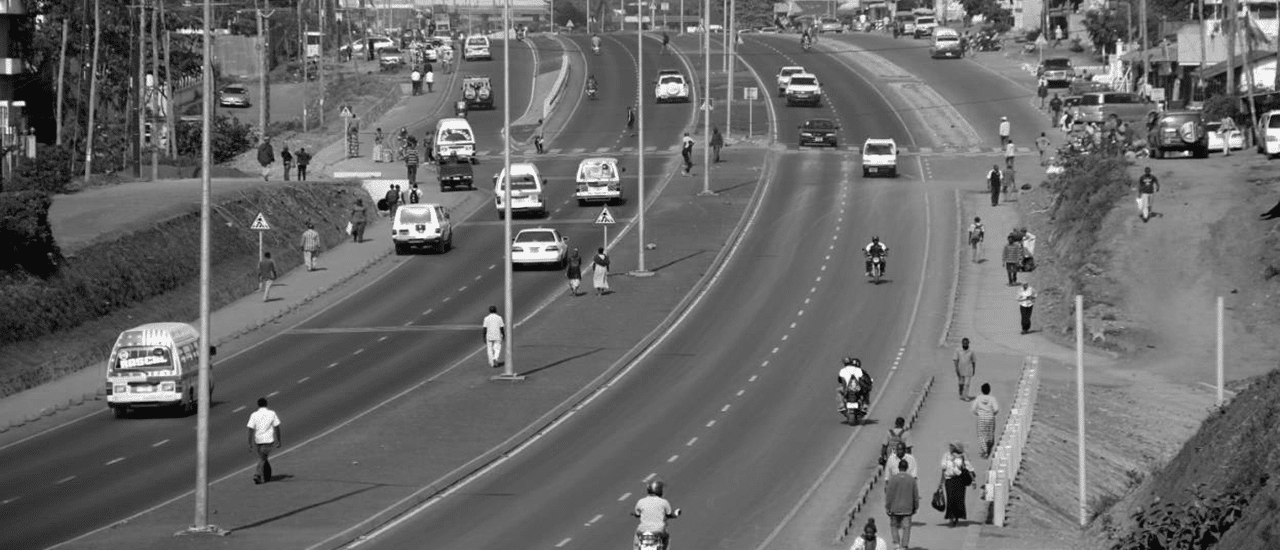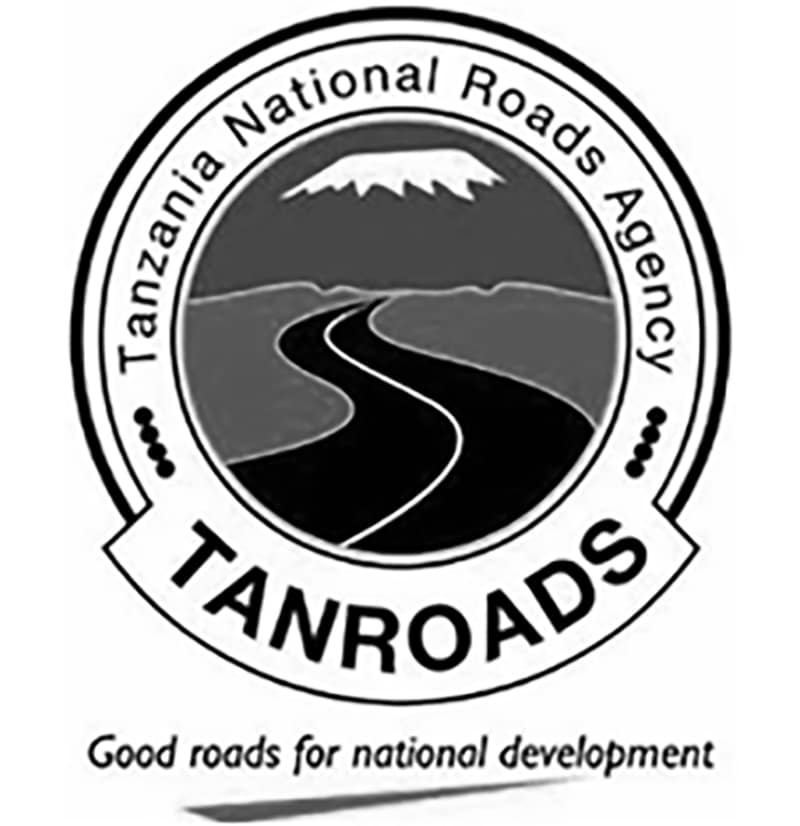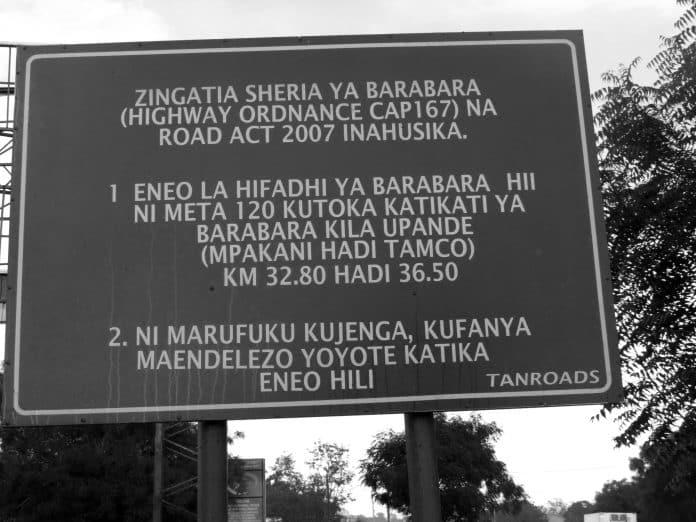Quick Insight: Tanzania National Roads Agency (TANROADS)
TANROADS Tanzania Overview
Mission and Vision of TANROADS
TANROADS Vision
TANROADS aim is to promote Tanzania’s economic and social development is to have a long-term, safe, and ecologically friendly all-weather trunk and regional road network.
TANROADS Mission
Through a skilled and well-motivated workforce, construct, maintain, and administer the Trunk and Regional Roads System in a cost-effective, secure, and ecologically responsible way, according to the Poverty Reduction Schemes and other Government policies.
TANROADS Motto
Roads that are conducive to national development
TANROADS Core Values
- Innovation
- Accountability
- Team Work
- Customer focus
- Excellence
- Integrity
TANROADS Underlying Policies
- Labor Based Technology
- Environmental Protection
- Gender Issues
- Employment Generation
- Private Sector Participation
- HIV /AIDS
- Support for the Growth of Local Contractors
TANROADS Stakeholders
- Investors
- General Public
- Tanzania’s Government
- Development Partners
- Consultants
- Environmental lobbyists
- The media
- 685 staff
- Contractors
Organization Structure of TANROADS – Directorates
Business Support
The Directorate provides TANROADS expertise in areas like finance and accounting, managing information systems, public relations, administration, and HRM [human resources management]. The following Division makes up the Directorate:
- Management Information Systems Division
- Public Relations Division.
- Administration and HRM Division
- Finance and Accounts Division
Maintenance
The Directorate is in charge of the general planning, organization, and budgeting of TANROADS’ road and bridge preservation programs, as outlined in the business and strategic Plans.
Units that make up this TANROADS Directorate are as follows:
- For observing and assisting the Lake Zone [Kigoma, Mwanza, Kagera, Mara, Tabora, Geita, Shinyanga, and Simiyu].
- For observing and assisting the coastal zone [Coast, Dar es Salaam, Mtwara, Lindi, and Tanga].
- For observing and assisting the Southern Highlands Zone [Njombe, Rukwa, Mbeya, Iringa, Morogoro, Katavi, Ruvuma, and Songwe].
- For observing and assist the Central Zone [Kilimanjaro, Dodoma, Arusha, Singida, and Manyara].
- For observing and assisting the Weigh Bridge operations across the country.
TANROADS Projects
The Directorate organizes overall bridge and road development tasks as outlined in the business and strategic plans. It is also in charge of completing the bridge and road construction projects that are outlined in the yearly goals.
The following TANROADS departments are part of the Directorate:
- GoT [Government of Tanzania] Sponsored Road projects
- Multilateral Sponsored Road Projects
- Bilateral Sponsored Road Projects
- Private and Public Partnership Sponsored Road Projects
Planning
The following principal objectives are under the responsibility of the TANROADS Directorate of Planning:
- Preparation for the formulation of yearly and master plans for the upkeep and expansion of the trunk and regional route networks.
- Guaranteeing that engineering blueprint and financial feasibility studies for bridges and roads projects meet technical specifications and are economically viable.
- Information collecting for the aim of road network management, engineering blueprint, budgeting for maintenance operations, investment in road infrastructure projects, and evaluation of road work progress versus set goals.
- Putting in place road safety, environmental, and social safeguards for road construction.
- Conducting tests on building material and civil works and authorizing research on road construction materials and technologies.
The Directorate is divided into four departments, with a total of 52 staff members.
- The Department of Planning has a total of nine employees.
- Road Safety and the Environment has a total of 6 employed staff
- Designing and Standard have a total of ten employed staff.
- Materials and Research has a total of twenty-seven staff members
TANROADS Procurement and Contracts
Directorate of Purchasing and Contracts manages all procurement and disposition by tender responsibilities of the Agency, excluding contract evaluation. For the TANROADS Head office Tender Board, the Directorate also serves as a secretariat. The Directorate’s duties are divided between three divisions:
- Divisions of Goods and Works,
- Divisions of Consultancy Services
- Divisions of Contracts Control.

TANROADS Legal Unit
1.Legal Unit
Is among the units founded in the TANROADS management structure underneath the Executive Agencies TANROADS [The Tanzania National Roads Agency] [Formation] Order 2000, GN.293 of 2000, Which went into operation on August 25, 2000, as revised by the Executive Agency [TANROADS] (Establishment) Revision Request 2009, GN.350 of 2009. All drafted under paragraph 3[1] from the Executive Agency Bill Chapter .245.
The Senior Legal Counsel, who directly reports to the Chief Officer, is in charge of the Division. A total of 8 registered Legal Counsels are working for the Division presently.
2.Duties
The following are some of the Unit’s primary responsibilities:
- Assist TANROADS with legal problems by providing legal advice and support.
- Provide technical assistance in the development of proposed legislation.
- Engage in a variety of discussions and meetings that require legal experience.
- Translate legislations across TANROADS.
- On non-contractual problems in which the Agency is part of, connect with the Department of the Attorney General Council.
- Create and evaluate various legal documents, including agreements, insurance policies, and so on.
- To be present during the signing of Contracts.
- Ratification and Vetting of contracts .
- to defend the Agency in all contractual issues in a court of law.
3.Legal Personality
In conformity with paragraph 3[6] [a,b, and c]of the Executive Agencies Bill Number.30 of 1999 Chapter 245 of the Modified Edition 2002 as revised by the Finance Bill Number.18 of 2002 and further interpreted unto Order 2[a and b] of the Executive Organization [TANROADS][Establishment] Order 2000, GN.293 of 2000, as revised by the Executive Organization [TANROADS][Establishment]) Revision Order 2009, GN.350 of 2009, The Tanzania National Roads Agency as an Executive Organization under the Works Ministry, communication and Transport is, notwithstanding any other Act, capable of entering into an agreement in its own name. It is also strong enough to sue and get sued in its personal title only in contract.
Semiautonomous is a term that has been used to describe TANROADS’ legal personality, as seen above.
AL-Hushmoom Transport Co Limited Versus TANROADS, Miscellaneous Civil Case Number.81 of 2002, Tanzania High Court, DSM Main Registration [unreported], was the 1st landmark case to interpret the above provisions of the Bill. The court agreed that an Executive Organization can be sued and can sue under its name only in matters relating to contracts. In all other cases, including those not associated with contracts, the government is meant to be sued via Attorney General’s office.
The following are a few examples of determining cases that support the above legal position:
- Land Case N0.31 of2006, Tanzania High Court, Land Department, DSM, of Total Tanzania Ltd against TANROADS [Tanzania National Roads Agency], unreported.
- Land Case Number..27 of 2006, Tanzania High Court Land Department, DSM, [unreported], TANROADS vs. Judge Dan Mapigano & nineteen others.
- Miscellaneous Case Number. 9 of2012, Lindi, Tanzania High Court, Adam Namulya and forty-eight others against Regional Manager, Tanzania National Roads Agency. Mtwara Land Department, [unreported].
- Tanzania National Roads Agency, Njombe Regional Manager against Sebastian Abdallah Msola, Civil Case Number.2 of 2014, Tanzania High Court, Iringa, [unreported].
- Civil Appeal Number.18 of 2012, Tanzania High Court, Arusha, Regional Manager [Tanzania National Roads Agency] Manyara Versus Gurbax Singh Sandhu, [unreported].
- Land Case Number.31B of 2012, Tanzania High Court, Bukoba, Omari Punja against TANROADS, [unreported].
- Miscellaneous Commercial Case Number.171 of 2014, [Derive from Business Case Number. 84 of2014, Tanzania High Court, Commercial Department, DSM [unreported]. The Case between African Banking Corporation Tanzania Limited versus TANROADS.
4. Main Source of Law of the Executive Agency
The following are the most significant pieces of law that have an impact on TANROADS’s ability to carry out the duties and commitments that it was established for:
- Executive Agencies Bill chapter 245, as modified every now and then.
- The Roads Bill N0. 13 of 2007
- The Government Proceedings Bill [Chapter 5]
- Tax Administration Bill N0.10 of 2015
- The VAT [Value Added Tax] Bill Number.10 of 2014
- The Labor and Employment Relations Act Number. 6 of 2004
- The Mining Act Number.4 of 2010
- The Land Act Chapter 113 R.E 2002
- The Land Acquisition Act N0.47of 1967
- The Valuation and Values Registration Bill, 2016
- The Public Procurement Bill N0. 7 of 2011
- Bill Number.6 of 2001 on Public Finances
- Bill Number.18 of 2010 on Public-Private Partnerships
- The Public Service Bill Number.2003 as modified every now and then.
Updates
5.1 Conflict of Labor Laws
Before 2015, the High Court of Tanzania’s Labour Court located in Dar es Salaam, in the proceedings of Attorney General Versus Maria Mselemu, Modification Number.270 of 2008 combined with Attorney Versus Allan Mulla in Modification No.271 [uninvestigated], had this to say about the various dispute settlement mechanism provided for under the Labour and Employment Relations Bill Number.6 of 2004 as well as the Public Service Bill Number.8 of 2002: –
“If Parliament had intended to exempt government employees from the labor rules, it would have said so clearly in the laws.”
In addition, the court noted:
“…the CMA has authority in labor disputes involving all staff members, even where the state is the employer. And the issue of whether there is a different legal mandated mechanism for resolving disputes; or a collective agreement for a secret settlement mechanism in a particular matter. And if there is, whether the same could be exhausted by the group making the recommendation would have to be settled as a preliminary matter.”
The above viewpoint looked to be in violation of the general principle contained in Generalia Specialibus non Derogant, which declares that general law must surrender to a specific law.
Section 30 of the Public Service Bill Number.8 of 2002 stipulated that employees of Executive Agencies and government organizations are subject to the terms of the laws creating the particular Agency or organization.
The preceding article 30 was renamed section30(1) by the Public Service Bill Number.18 of2007, and section30(2) was introduced to the section, indicating that employees of executive agencies and government organizations shall also be subject to the Public Service Bill Number.8 of 2002.
This was also widely known that section2(1) of the Employment and Labour Relations Act Number.6 of 2004 stated that the Act would apply to every employee, even those in the Government of Tanzania’s public sector in Mainland Tanzania.
The Public Service Act 2002, a precise regulation, should have taken precedence over the Labour and Employment Relations Act 2004, a general law.
The Labour and Employment Laws [Miscellaneous Revision] Act Number.24 of 2015 modified chapter 34 of the Public Service Bill 2002 by adding chapter 34A, as well as chapter 102A of the Labor and Employment Relations Act of 2004.
These amendments have, in essence, introduced two new principles relating to the conflict of labor regulations.
The 1st principle established by section 34A of the Public Service Bill 2002 is that if the provisions of this Act disagree with any other laws regulating Executive Organizations, public service offices, or any other public institutions, the provisions of this Bill will take precedence.
The 2nd principle established by section 102A of the Labor and Employment Relations Bill 2004 is that in the possibility of a dispute between this Bill and any written Act relating to employment guidelines, the provisions of this Act will take precedence.
Another principle was introduced in 2016 by the Written Laws [Miscellaneous Revision][Number.3] Act 2016, which has revised chapter 32 [thirty-two] of the Public Service Bill 2002 by adding chapter 32A, which requires a public servant to exhaust all solutions provided underneath the Public Service Bill 2002 before seeking solutions under labor laws.
The legal wrangling embodied in the matters decided by the Tanzania High Court, Labour Department, Dar es Salaam in Modification Number 270\271 of 2008 has come to an end with this amendment.
TANROADS Internal Audit
1. General Overview
Auditing internally is an independent evaluation function within the Agency that examines and evaluates the Agency’s activities as a service. Internal auditing’s goal is to help TANROADS perform its duties more efficiently and effectively. The audit’s goal is to assess and improve the efficiency of controls, risk management, and governance procedures while staying within cost. The Internal Audit Unit’s general role is to support the Chief Officer in coordinating the Agency’s risk management, internal control, and corporate administration systems.
Governance
Internal auditing strives to assist TANROADS in maintaining good governance and combating corruption across the organization. The Unit assesses the governance process in order to make the necessary improvement so that:
- The Agency’s corporate value and objectives are established, conveyed, and safeguarded;
- The accomplishment of objectives is tracked;
- Transparency and accountability are ensured.
- There is high-quality corporate integrity in place.
- The operations are in compliance with all applicable laws, rules, and procedures.
- Each department of the Agency does its affairs ethically and professionally.
- Internal controls are in place at the Agency to prevent workers from engaging in conflicts of interest, misbehavior, or fraud.
2. Reporting
The Senior Internal Auditor, who answers to the Chief Officer of TANROADS, is in charge of the Unit. The Unit carries out its responsibilities by consulting with the Agency’s Audit Board and Management, as well as maintaining regular contact with other professional governance agencies.
Other Important Things to Know About TANROADS
- Popular Branches:
-
- TANROADS Dar es salaam
- TANROADS Arusha
- TANROADS Dodoma
- TANROADS Kigoma
- TANROADS Morogoro
- TANROADS Mwanza
- TANROADS jobs – https://www.tanroads.go.tz/vacancy
- TANROADS salary scale – Download PDF
TANROADS Logo

For more articles related to the Government of Tanzania and the Society (Community), click here!


































